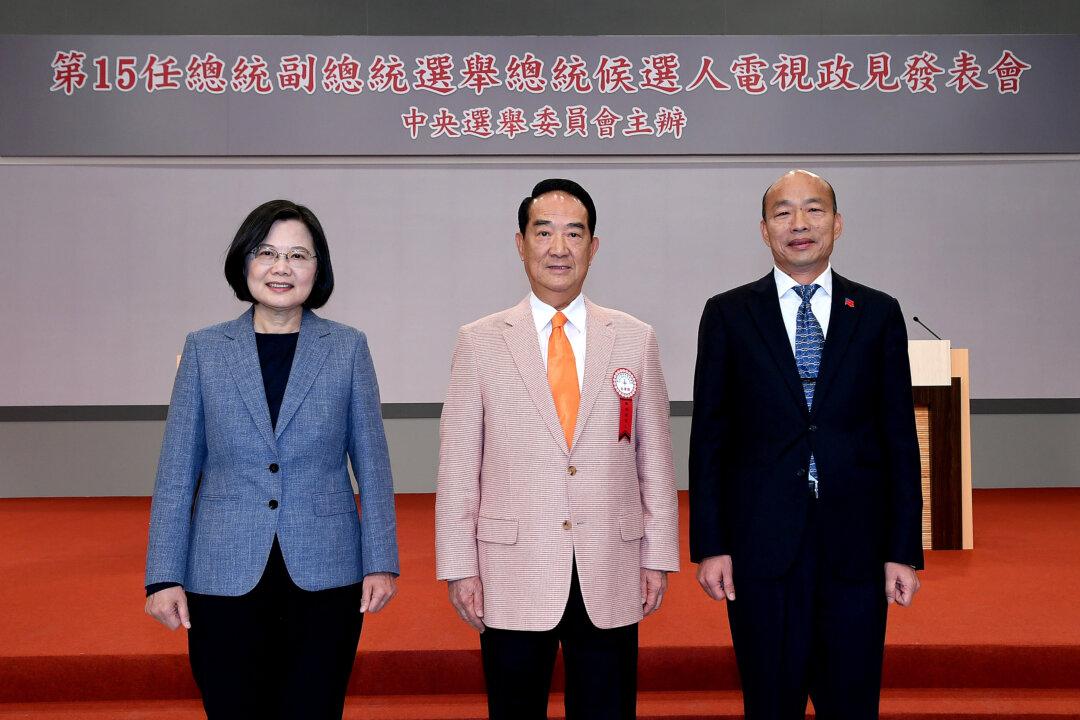TAIPEI—What Communist Party rulers in China fear the most is Taiwan’s democracy, President Tsai Ing-wen said on Dec. 18, describing Beijing as a threat seeking every day to undermine Taiwan and criticizing her main opponent for being too close to China.
Tsai, who faces re-election on Jan. 11, has repeatedly warned of the danger posed to self-ruled Taiwan by China, which claims the island as its own territory to be brought under Beijing’s control by force if needed, a message Chinese leader Xi Jinping reiterated in January.





